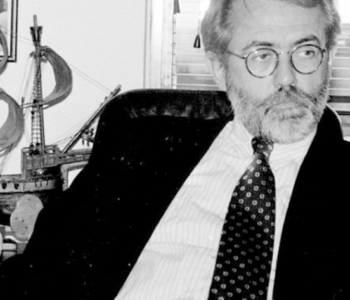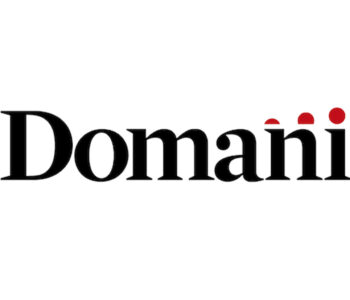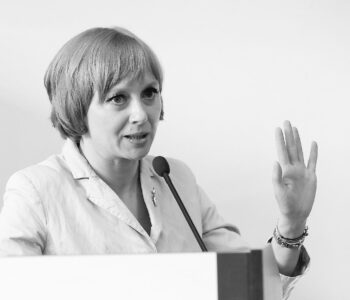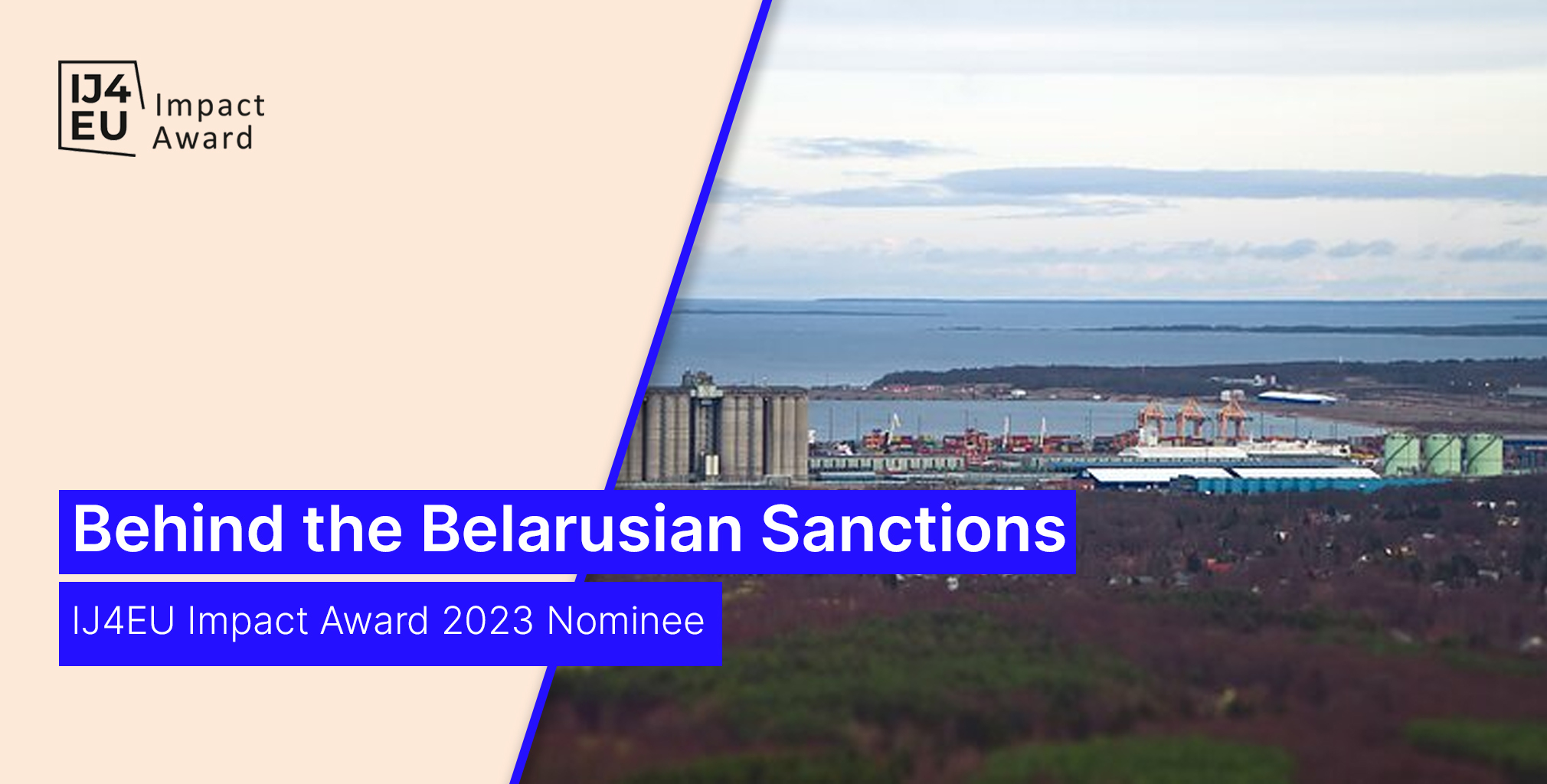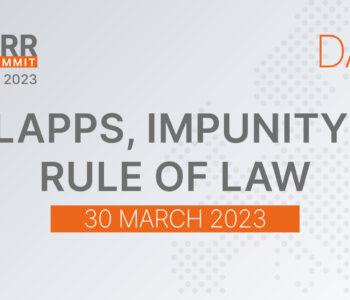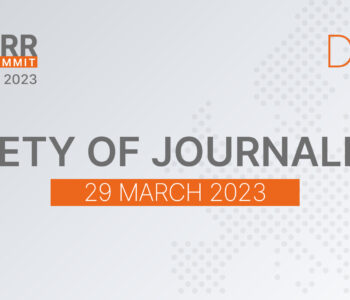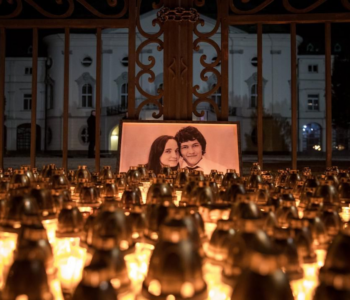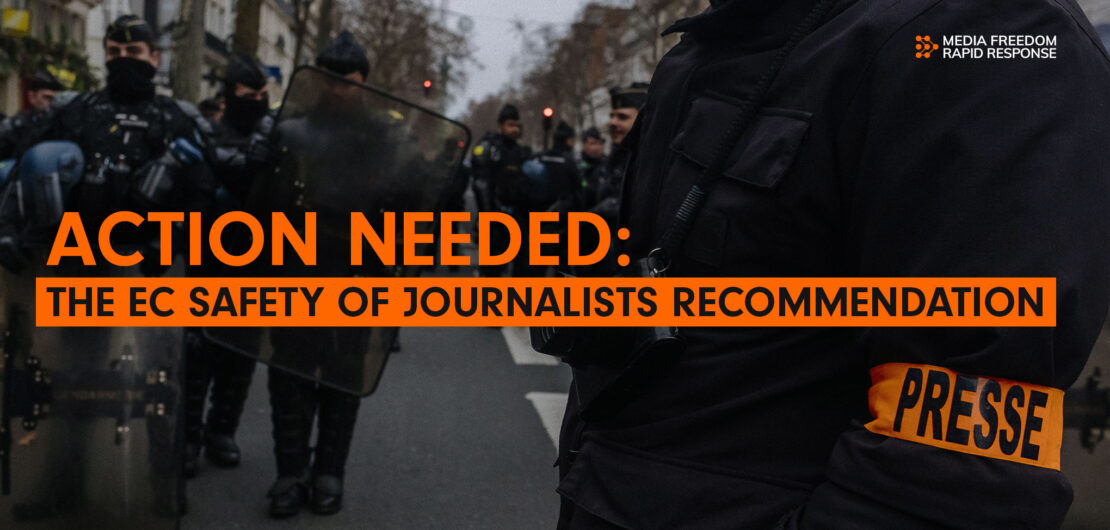 Library
Library
Action needed: The European Commission Safety of Journalists Recommendation
Action needed: The European Commission Safety of Journalists Recommendation
Today, 16 March 2023, marks 18 months since the adoption by the European Commission of its Recommendation to the Member States on ensuring the protection, safety and empowerment of journalists and other media professionals in the European Union. The European Commission is due to perform an evaluation based on key performance indicators, to take stock of the progress achieved by the Member States. In this context, the partners in the Media Freedom Rapid Response (MFRR) call on the European Commission and the Member States to develop comprehensive and regular reporting mechanisms that involve all key stakeholders to effectively measure and continually follow up on the Recommendation’s implementation.
We urge the Member States to take action for the safety of journalists without further delay and implement the provisions of the Recommendation.
The European Commission’s Recommendation came at a critical time. As documented by the MFRR on our Mapping Media Freedom platform and analysed in the Monitoring Reports, as well as the Council of Europe’s Platform to promote the protection of journalism and the safety of journalists, the safety of journalists in Europe is in deep crisis. Reporters across the Union face many forms of pressure and attacks. In 2022, the MFRR recorded 415 alerts in EU Member States. Verbal attacks such as intimidation and threats or insults constituted the main type of incident, involving 42% of all alerts, while physical attacks were involved in 20% of cases and attacks to property in 17%. The latest Annual Report by the Council of Europe Platform partners meanwhile characterises the situation as a “context of a continued degradation of press freedom across the continent”.
At the time of its publication, the MFRR partners underlined that the key to the Recommendation’s success will lie in following up on its outcomes and holding the Member States to account. Despite clear international laws and standards for improving journalists’ safety, they did too little to turn the tide on the rising number of attacks on journalists. The Recommendation in this regard explicitly aims to support the implementation of the Council of Europe’s standards, particularly its Recommendation 2016(4).
To help kickstart the conversation on the Recommendation’s implementation, the MFRR is currently surveying EU-based affiliates of the European Federation of Journalists (EFJ), which are journalists’ unions and professional associations, on the actions and progress achieved so far. Their active involvement, and that of journalists and media workers more broadly, by the Member States and the European Commission in putting the Recommendation into practice is central to ensuring that the measures taken by Member States are effective. The survey focuses, in particular, on those specific recommendations that explicitly call for the involvement of journalists’ representatives. While the MFRR will publish the full results of the survey later this Spring, three key preliminary findings are worth highlighting now:
- After 18 months, the implementation of the Recommendation is very uneven, with pronounced differences between the Member States and from one recommendation to another.
- Evaluating the implementation status is a nuanced undertaking, with our research indicating many instances of partial implementation.
- Obtaining a clear picture of any progress achieved becomes even more challenging when considering the impact. For one, some of the implemented measures and actions may need time to yield results, and it may simply be too early to draw either positive or negative conclusions about their effectiveness. In some other cases, even partial implementation of a recommendation has had a positive impact already, which can provide helpful insight on how to proceed with structuring further reforms for the Member State involved or for others who are lagging behind even further.
Although merely preliminary, these findings are nevertheless instructive as to the task ahead for the Member States and the Commission. It is clear that they must develop reporting and evaluation tools and procedures at national and regional levels that result in a meaningful assessment of the measures and actions that have been undertaken to implement the Recommendation. Measuring performance will require a nuanced approach to collecting data and developing indicators to capture the complexity of the challenge at hand. Only then will the Recommendation be able to deliver on its aim of strengthening media freedom and pluralism by promoting joint and coordinated efforts by the Member States. Moreover, given the uneven implementation, the process focusing on the Recommendation’s implementation evidently cannot be a one-off. Sustained engagement will be needed going forward and must involve all relevant stakeholders, including journalists and media workers, their associations and unions, civil society and media owners.
As concerns the design of this process, we believe useful lessons can be drawn from the experience with the Rule of Law reports to ensure its credibility, inclusiveness and impact. The MFRR partners call on the European Commission and Member States to develop a transparent process for collecting and evaluating pertinent data. Core information about all main aspects should be communicated well ahead of time. This should include clear timelines, criteria for selecting stakeholders based on protocols established jointly with non-State actors, and a transparent methodology for processing their input. To ensure the process generates action, it should result in specific recommendations and follow-up questions, guiding governments on the actions needed to address identified shortcomings, enabling civil society to monitor follow-up action and seek accountability, and promoting a transparent and participatory dialogue between all stakeholders.
This statement was coordinated by the Media Freedom Rapid Response (MFRR), a Europe-wide mechanism which tracks, monitors and responds to violations of press and media freedom in EU Member States and candidate countries.

